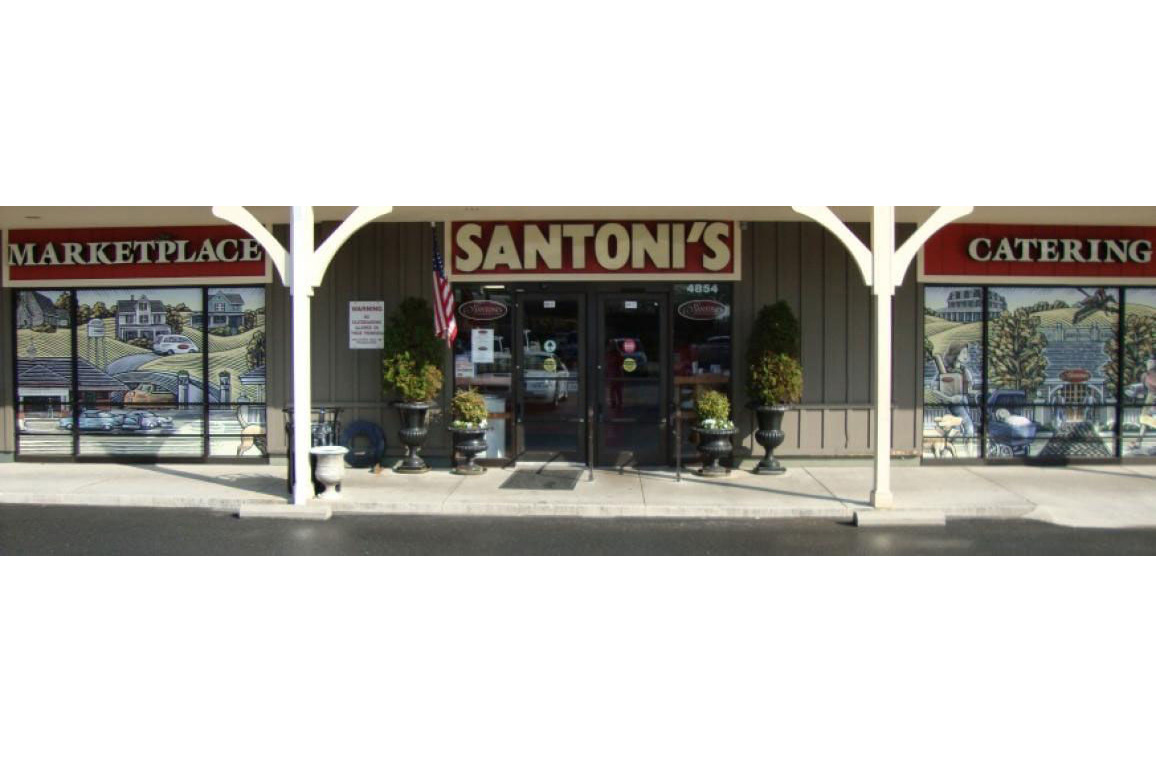When events collapsed during quarantine, grocery side took off
by Mary Margaret Stewart, staff writer
Lou Santoni and his brother, Rick, own Santoni’s Marketplace and Catering in Baltimore County, Maryland. And they were fortunate during the COVID-19 pandemic to have the grocery business to lean on.
“COVID had a huge impact [on catering],” Santoni said. “We do special events, mostly weddings and a lot of corporate catering, [which] fell off the cliff because people were not working in offices.
“The weddings got hit. People were moving events quickly and staying away from the initial months of COVID…we were happy that we had a hybrid because I think it helped us to manage through this.”
The hybrid model has allowed the family business that the Santoni brothers have been running since 1986 to stay open.

“The parent company, [Santoni’s Markets] was founded by my Italian immigrant grandparents in East Baltimore in the back of their home in 1930,” Santoni said. “They started it in the back of their house – a 14-by-16-foot store – and then expanded it several times and turned it over to the four sons who wanted the business in 1972-73.”
After their uncles took over the business, they began to grow a chain in the Baltimore metro area.
“They had this unique concept that was kind of a deli/bakery small marketplace store, about a 5,000 square footprint. They opened one, and it was so successful they decided to the franchise it,” Santoni explained.
“[My brother and I] bought their first franchise and kept it as a franchise for 10 years and realized that they were going in a different direction than we were.”
In 2005, they made the decision, after some research, to stay in a smaller footprint.
“We’re a 12,000-square-foot store. We thought that as an individual store, it would be difficult to compete against the big national chains and the big boxes as a supermarket with a single store,” Santoni said.
“We don’t carry the full range that every department in the supermarket might carry. We carry the best sellers…you don’t have the luxury of having 10 brands of ketchup…so you better have the right items.”

Santoni described the market as a unique model, in both its size and offerings. It doesn’t have the depth of the center store most traditional supermarkets do. Instead, its strength comes from a strong perishable perimeter.
“We said we can have a smaller, more intimate, clean, bright, cheerful store with the right items with the right quality,” he said. “Overall, it’s a model that we know and love and continue to refine, and it seems to work for us.”
Fast-forward to 2020, and the pandemic has pushed Santoni’s to encompass some new capabilities, such as grocery deliveries and curbside pickup.
“That was a strong suit for us, and we continue to do so. We will probably do some form of [delivery and curbside pickup], even [coming] out of COVID because a lot of folks that are older…appreciate the services, let alone the folks who are afraid to get out.
“But the grocery side – the meat, seafood, produce side of the business really took off, like most supermarkets. People weren’t eating in restaurants, they weren’t eating at their offices, and the kids weren’t eating in school – they were eating at home.
“We saw that side of the business significantly grow, to which we were grateful because of the loss of the catering side, which was a huge number in our business.”
As the catering business has slowly began to pick back up, Santoni’s has adjusted its offerings to meet pandemic-day demand.
“We’ve done a lot of downsized packages,” Santoni said. “For families and for companies, we’ve done things like box lunches that are already pre-packed…we’ve come up with smaller package sizes to target families who still are having an event with a lot less people.”
And as business has returned, Santoni’s has been able to bring back everyone that was laid off and wanted to come back.
“We’re now back at full employment,” Santoni said. “If we had just the grocery store, we probably wouldn’t have had to lay off anybody. [The loss of] catering…forced us to do that.
“COVID has been a very difficult challenge for us. For us or for others, the most important thing we’ve had to do is just continue to evolve and respond…we’re hopeful that we’ll continue to come out of it.”
To learn about the current state of the food industry in Maryland from the president of the Maryland Retailers Association, click here.

